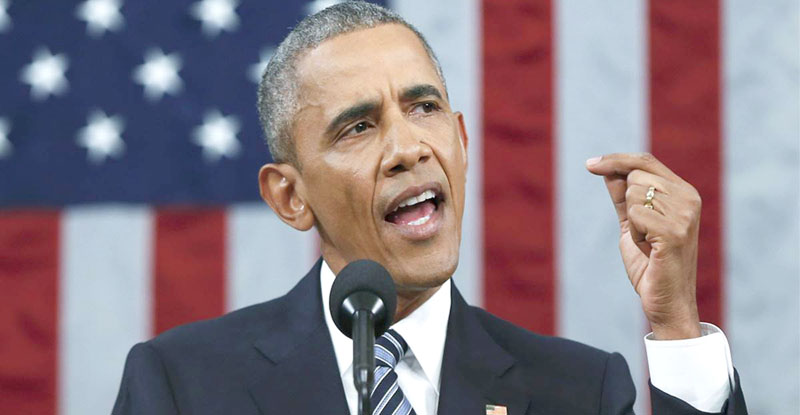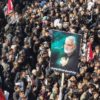Analysis
Did Barack Obama Presidency Impact Africa?
Kogelo village in Kisumu, Western Kenya, is where Hussein Obama, the father of out-going US President Barack Hussein Obama, was born. When Barack Obama won the US presidency eight years ago, there was euphoria in Kenya, where, unreasonably, Kenyans perceived that, because this was where his antecedents were, therefore, a Kenyan had assumed the presidency of the United States.
Yet, it marked the remaking of Kogelo from a rural backwater of Kenya. First, the Kenya Government tarmacked the road leading to Obama ancestral home; it rebuilt the house in which Obama’s grandmother, Mama Sarah, lives. This was in anticipation of Obama’s visit to Kenya, which he made five years into his presidency.
Obama himself kicked in to transform Kogelo. He sent in dollars through a scheme that made every villager to build corrugated iron-roofed houses replacing the grass-thatched wattle-and- mud-ones.
The previously run-down Senator Barak Obama Senior Secondary School was refurbished with the modern construction materials and its students given scholarships that got all of them to wear shoes, as an important addition to improved scholastic materials.
This expectation, that has transformed Kogelo, was expected by the whole of Kenya; and indeed the rest of Africa, as having one of their own occupying the most important global office. This is where Obama’s legacy is being measured in Africa. What did/has he done for Africa to improve its lot? And does it measure to the weight with which the US presidency can be wielded to impact world affairs?
For the youth of Africa at least, Obama, went ahead to introduce and launched a programme that will hopefully direct the future of Africa. In a continent where nearly 60% of the population is under 35 years, Obama brought in the Young African Leaders Initiative (YALI).
Set up in Nairobi, Kenya, YALI has farmed all African youth to its training programmes. They are in: business and entrepreneurship; civic leadership; and, public management.
Already in its years of operation, YALI has put out more than 1,000 youth who have gone out all over Africa implementing aspects of their training at the institution. Their impact will be felt long after Obama had shuffled from the global scene.
But most African commentators and observers wanted to see tangible results in their own lives and lifetime. That would mean US policies that would spur economic growth in the African continent as a whole; and also, political re-orientation that would set democracy as an all-embracing principle and giving direction to socio-political development; and not least, tranquility and a peaceful continent to harness the endeavours of its youthful population towards that desired development.
The African Growth and Opportunity Act (AGOA), first introduced during the presidency of George W. Bush, was extended by the Obama Administration. Accordingly, “AGOA continues to be critical to expanding and diversifying our trade and investment relationship with Africa,” the Obama White House said at the time of its extension. In this instance, AGOA subsumed African producers in accessing the U.S. market and encouraging American companies to invest on the continent.
Over 40 eligible African countries have had varying degrees of benefits from. Many of them blamed Obama for not extending the implementation of the Act to promote trade with Africa in a more meaningful manner than the aid that is being promoted by the Unites States Agency for International Development (USAID), a US Government agency.
Perhaps the African country that can claim benefits in this area as an example to the rest of Africa is Tanzania.
In his visit to the country in 2013, Obama lauded the country’s agricultural potential and interested multilateral businesses such as: General Electric, Microsoft, Coca-Cola and Symbion Power Corp, which partnered with GE to build a major dam in Tanzania. But this was mainly aimed at trying to erode the Chinese influence, not just in the country, but in the continent, as a whole.
Still, Obama promoted Power Africa, aimed at improving the continent’s power grid and Trade Africa, a partnership between the US and the East African nations intended to expand trade with the East African Community (EAC), to boost exports to the United States by 40%.
In Dar es Salaam, Obama said: “I intend this to be the beginning of a new level of economic engagement with Africa,” adding, “If people across this continent are just given a chance, if they’re empowered with the skills, resources and capital, they can achieve extraordinary progress.” That visit bagged Africa $7 billion in power infrastructure development.
Negative Influence in Africa
Still, many pundits put Obama’s economic advancement in Africa as minimal in comparison to, the Chinese, for instance; and in contrast to its political involvement. One has only to mention Somalia, to know that AMISOM – the African Mission in Somalia – is largely financed through USAID. The recent threat of withdrawal of Burundian troops from Somalia for the delay of the money from USAID followed by the European Union (EU), indicates Africa’s vulnerability.
Nowhere is this more pronounced than when Obama led the Western countries in the conflict to oust Libya’s long-time leader, Muammar Ghaddafi in defiance of the interests of the African Union (AU). This followed Obama’s Cairo Speech eight years ago, which many see, as having inspired the Arab Spring.
In the immediate, it led to Egypt’s uprising against Hosni Mubarak. Bu many saw that he was luckluster in Mubarak’s ouster when he should have lent it his democratic credentials.
According to the US Pew Research Center, Egyptians’ confidence in Obama slipped from 42 percent in 2009 to 29 percent in 2012. A Cairo University student now calls it Obama’s “indecisiveness” and an inability to make swift decisions as crucial events unfolded in the region following the Arab Spring.
Obama himself has regretted some of his actions in the Middle East. In a press interview last year, he described the lack of planning in the aftermath of the ouster of Gaddafi as the biggest mistake of his presidency. Equally, the Arab Spring Speech led to the crisis in Syria, which has led to the destruction of the country.
Even then, this presaged the “red line” over chemical weapons usage in Syria, as a similar effort over terrorism Much as its impact is not seen as specifically referring to Africa, except where Somalia is involved, it cannot be gainsaid that Obama’s global war against terrorism, in particular his command of the killing of the Al Qaeda leader, Osama Bin Laden, has to some extent lessened the terrorist threat in Africa. Obviously, instances like Kenya’s Westgate Mall terrorist murder will not go well for Obama’s legacy.
Perhaps Obama’s visit to Ghana in 2009, to an Africa’s first modern independent nation, was the most significant trip to the continent by any U.S. political figure, but again, it did not bring a significant relationship between the “Motherland and the world’s sole superpower”.
He focused on Africa’s role in the global economy, and importance of good governance. The Ghana visit was due to its good governance record. Obama specifically referred to that that Africa did not need strongmen, but good institutions.
He identified four areas that are critical to the future of Africa and the developing world: democracy; opportunity; health and the peaceful resolution of conflicts.”Your prosperity, health, security and democracy can help advance human rights for people everywhere,” he said.
And added: “Africa’s future lay with Africans.” It will take time and effort. There will be suffering and setbacks. But I can promise you this: America will be with you, as a partner and as a friend.” To many observers and interested parties, this is debatable.
Comments



























